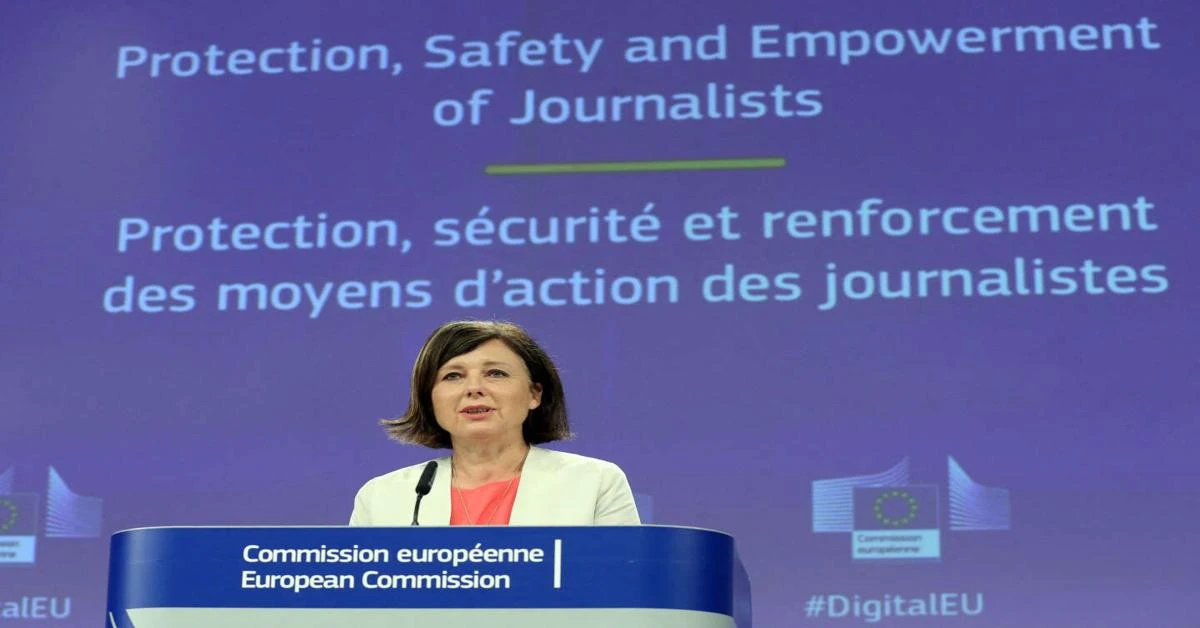EU lawmakers adopt media freedom law

The act will oblige EU countries to protect media from economic, political and governmental interference
The European Parliament took a historic step today by approving the bloc’s new Media Freedom Act, a pivotal move to safeguard newsrooms from political influence and enhance pluralism.
The Media Freedom Act, adopted with a significant majority – 464 votes in favor, 92 against, and 65 abstentions – marks the first-ever European legislation in this domain, according to lead German lawmaker Sabine Verheyen.
Introduced by the European Commission in 2022, the act is a response to growing state control over media organizations and attacks on press freedom, aiming to protect journalists and ensure a diverse media landscape.
Approved by EU countries in January, the law is set to be implemented in 2025, shaping a new era for media freedom within the European Union.
Key provisions
This comprehensive regulation mandates EU governments to better protect media against malign interference and limit the use of spyware against journalists. The new law will ban governments from going after journalists to reveal their sources by deploying spyware on their phones, though some exceptions to the ban apply.
It will also introduce transparency requirements for media ownership and state advertising, procedures to check media concentration, as well as a new layer of protection for news outlets from arbitrary takedown decisions made by big online platforms.
A dedicated EU body, the European Board for Media Services, will oversee the implementation of these groundbreaking laws.
European Parliament President Roberta Metsola praised the adoption of the Act and said the parliament had “made history”, honoring the memory of journalists like Daphne Caruana Galizia and Ján Kuciak.
Acknowledging negotiation limitations
While the law received widespread support, it faced limitations in achieving a full spyware ban. Sabine Verheyen acknowledged this, explaining that governments can only employ spyware against reporters as a ‘last resort’ mechanism with a legal motive under the new laws.
The Parliament had aspired for the law to enforce a complete ban on the use of spyware against reporters, particularly in response to documented instances involving software like Pegasus and Predator, which targeted the equipment of journalists in Greece, Hungary, Poland, and Spain.
However, acknowledging the limitations faced during negotiations, Sabine Verheyen conceded, “We would have liked stronger wording when it came to spyware, but that wasn’t something we could achieve.”
While some northern EU countries, such as Ireland, Finland, and Sweden, consistently rank among the top five globally for media independence, others, like Greece, find themselves significantly trailing behind, occupying the 107th spot in the global rankings.
Source: Newsroom



